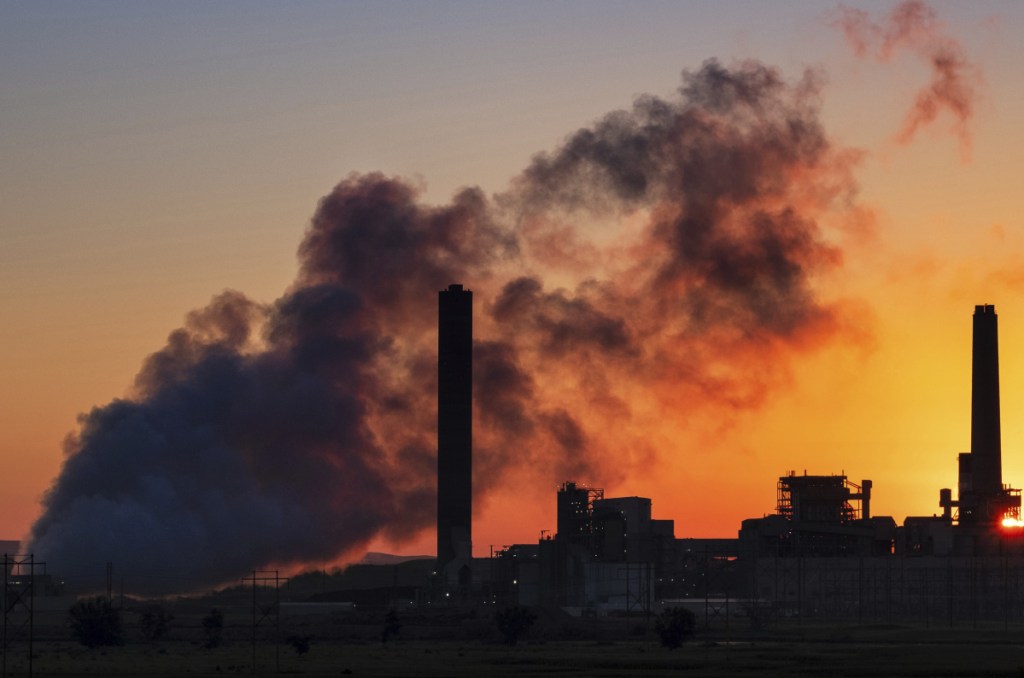For people concerned about climate change, the daunting drumbeat of year-end news is alarming.
“It is hard to overstate the urgency of our situation,” U.N. Secretary-General Antonio Guterres said last week at the U.N. climate conference in Poland. “Even as we witness devastating climate impacts causing havoc across the world, we are still not doing enough, nor moving fast enough, to prevent irreversible and catastrophic climate disruption.”
The U.S. government’s Fourth National Climate Assessment — quietly released on Black Friday — also describes in disturbing detail the anticipated impacts of climate change. As temperatures increase, so do the odds of wildfires in the West, more record-breaking “nuisance flooding” events in South Florida and more disruptions in ocean fisheries. Absent a course correction, it suggests we face staggering effects on water, energy and human health.
And the annual Arctic Report Card released by the National Oceanic and Atmospheric Administration this week says the Arctic region has experienced a multi-year period of warmth “unlike any period on record” and the effects are cascading around the globe.
Meanwhile, greenhouse gas emissions are growing like a “speeding freight train” because of a surging appetite for oil, the New York Times reported last week. Worldwide, carbon emissions are expected to increase by 2.7 percent in 2018.
President Donald Trump doesn’t buy it. “I don’t believe it,” he said of the climate assessment produced by 13 federal agencies. Remember that last year, he responded to a chilly New Year’s forecast by tweeting “perhaps we could use a little bit of that good old Global Warming.”
Since that tweet, the president has rolled back Obama-era restrictions on coal emissions. And at the global climate change summit, his representatives set up a trade-show exhibit promoting fossil fuels.
Still, amid this flood of dispiriting news, a flicker of hope arose that deserves more oxygen.
The spark comes from U.S. Rep. Ted Deutch, a South Florida Democrat who’s witnessed the region’s “nuisance flooding,” even on sunny days. Deutch is committed to addressing the threat we face from sea-level rise. Two years ago, with former Republican Rep. Carlos Curbelo of Miami, he created the Climate Solutions Caucus, which now has 90 House members — 45 Republicans and 45 Democrats.
Sadly, the climate caucus splintered before the election, when only four Republican members voted against a House resolution that denounced the idea of a carbon tax as detrimental to the economy.
Deutch bounced back two weeks ago with a small bipartisan group. Together, they introduced a bill that would impose a fee — not a tax — on carbon emissions, and return the money to citizens.
The fee would gradually increase the price of carbon products, like coal and petroleum, based on the emissions they produce. The goal is to encourage consumers to use less, and to spur coal and oil companies to innovate clean-energy solutions.
As a trade-off, the bill would suspend federal environmental regulations on greenhouse gas emissions. The sponsors believe the pricing policy would achieve better results. Regulations for other pollutants such as sulfur and mercury would remain. If the dividend plan fails to achieve hoped-for carbon reductions, the regulations would return.
The carbon fee idea actually drew support more than a year ago from the nonprofit Climate Leadership Council, whose founding members include ExxonMobil, BP and Royal Dutch Shell. The idea was developed by several elder Republican statesmen, including former Secretaries of State James Baker III and George Schultz.
Despite such expressions of support, initiatives to reduce carbon emissions have encountered rough sledding in state capitals, in the nation’s capital and abroad.
In November, voters in Washington State rejected a carbon tax for the second time in two years. In Canada, Prime Minister Justin Trudeau is facing a backlash over his attempt to put a price on carbon pollution.
And across the Atlantic, a plan to increase fuel taxes by a climate-change conscious French government went up in flames after protesters took to the streets.
Without question, Deutch’s bill would lead to higher fuel and energy costs, but people would get a monthly dividend check to help offset those costs. If they want to spend that check on other things, perhaps they’ll be motivated to turn down the heat or drive fewer miles. And companies that produce carbon-emitting products might be spurred to innovate to reduce their fees.
In truth, the bill stands little chance of becoming law in today’s Washington. But it could — and should — generate sustained attention after Democrats assume leadership of the House in January.
“The status quo isn’t sustainable,” Deutch rightly says.
We can do something to slow the acceleration of carbon emissions, and keep the impact of climate change from growing increasingly worse.
Deutch’s bipartisan bill is a good place to start.
Editorial by the Sun Sentinel (Fort Lauderdale, Fla.)
Visit the Sun Sentinel (Fort Lauderdale, Fla.) at www.sun-sentinel.com
Distributed by Tribune Content Agency, LLC.
Send questions/comments to the editors.



Success. Please wait for the page to reload. If the page does not reload within 5 seconds, please refresh the page.
Enter your email and password to access comments.
Hi, to comment on stories you must . This profile is in addition to your subscription and website login.
Already have a commenting profile? .
Invalid username/password.
Please check your email to confirm and complete your registration.
Only subscribers are eligible to post comments. Please subscribe or login first for digital access. Here’s why.
Use the form below to reset your password. When you've submitted your account email, we will send an email with a reset code.